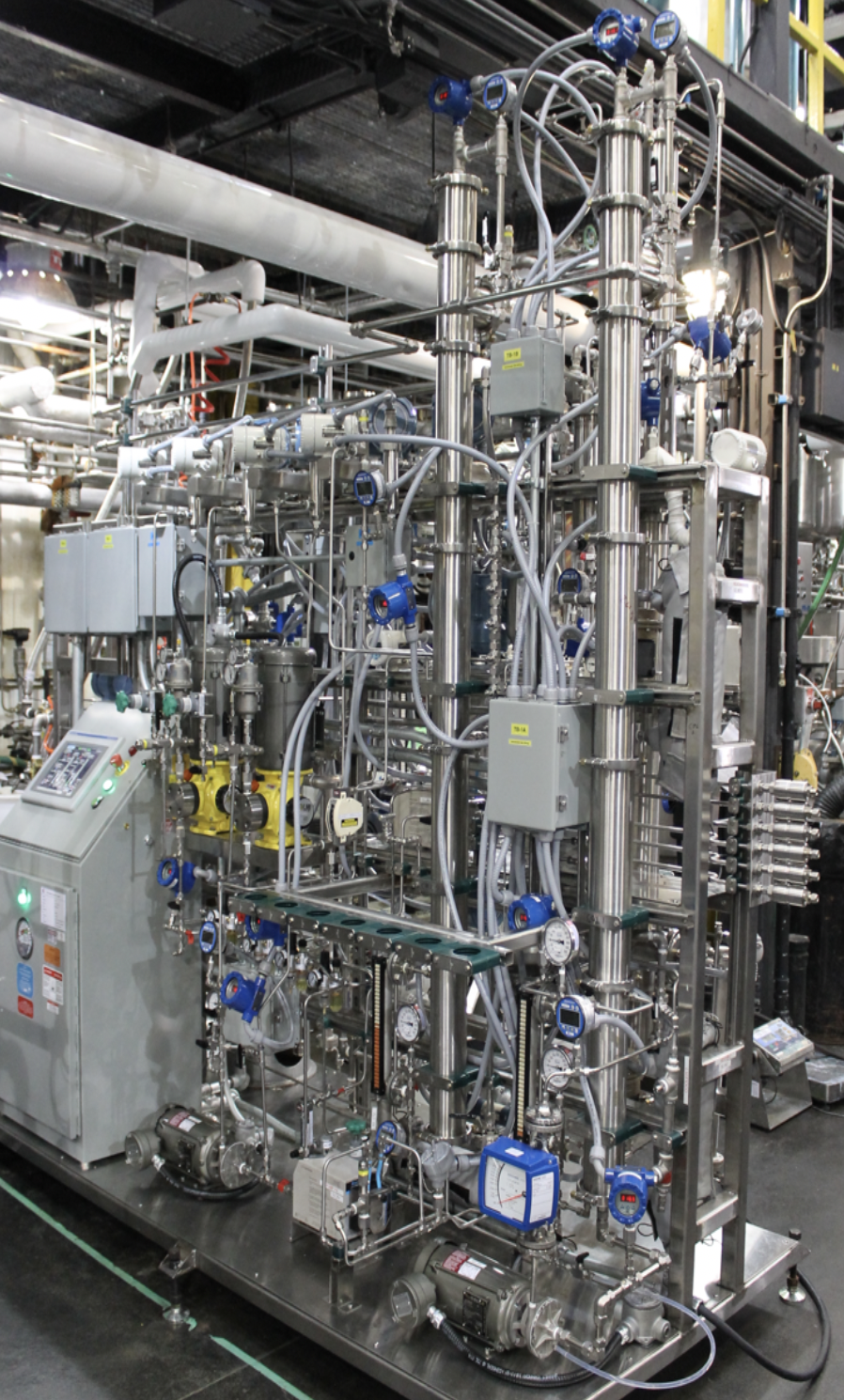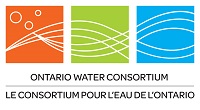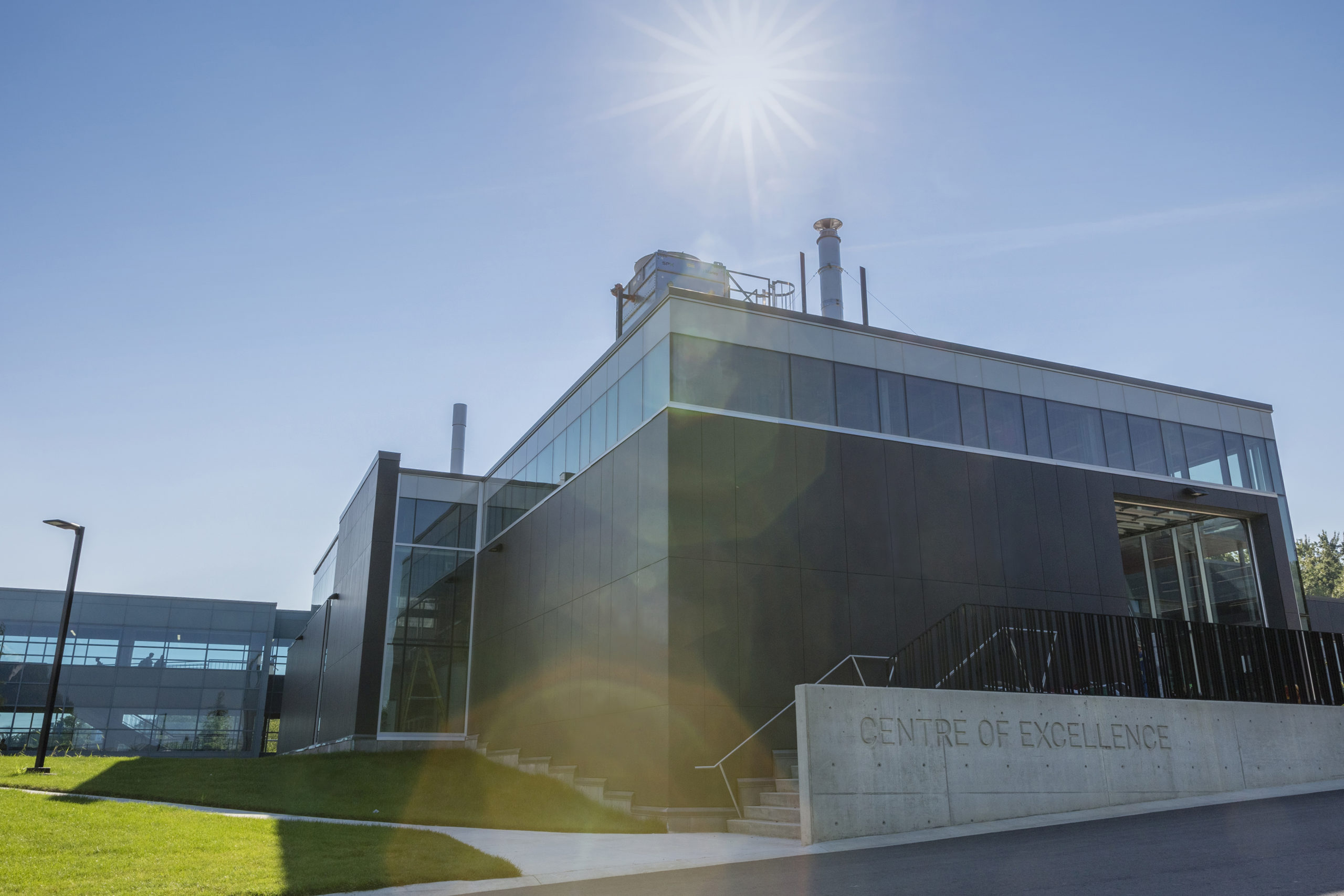In 2020, Research Infosource ranked Sarnia’s Lambton College the top research college in Ontario and second Canada-wide. The Lambton Water Centre (LWC) is a big reason why, helping companies optimize technologies, scale up projects and reduce operational costs since 2013.
“Ontario is a very innovative province with respect to developing water technologies,” says Mehdi Sheikhzadeh, the college’s VP of research and innovation. But, he continues, there are very few applied R&D centres in Ontario — or even across Canada — that are focused on water.
And that means there’s increasing demand for the practical research support offered by institutions like the LWC. Since receiving its first NSERC grant nearly a decade ago, the centre has grown significantly.
Meeting industry needs
Today, it offers a range of applied research services for businesses and organizations that lack enough R&D capacity in-house. Testing and prototyping facilities help projects move from the lab bench to full-fledged pilots. Meanwhile, research teams lend their expertise in sensor design, instrumentation, bioremediation, plant design and more.
Then there’s LWC’s growing suite of specialized equipment, allowing companies to automate, calibrate and optimize their systems. Meanwhile, the centre’s analytical tools have facilitated a number of projects focused on water chemistry.
LWC also has access to equipment and expertise across a larger innovation ecosystem. That’s because Lambton College boasts several other research centres, specializing in bio-industrial processes, material development, information technology, energy and manufacturing.
“There is a very seamless and strong collaborative culture between these research centres in terms of supporting a company,” says Sheikhzadeh. For example, he points to partnerships with the college’s Information Technology & Communication Research Centre on projects that involve data mining for water applications.

Innovative osmosis solution for treating industrial wastewater created by LWC in collaboration with Forward Water Technologies
To make things as easy as possible for companies, Lambton College uses a centralized research office that handles the intake of projects, mobilizes the necessary resources, and ensures everything is completed on time and on target.
Sheikhzadeh notes that while university research relies heavily on graduate students, at LWC, professional researchers lead the work and students and graduates are engaged as researcher assistants and associates. And unlike their university colleagues, they can focus on a company’s R&D challenge without feeling pressured to publish the results in academic journals.
Finally, when a project wraps up, Lambton’s Intellectual Property (IP) policy ensures the rights to any newly developed technologies stay with the company, allowing it to attract further investment and bring the technology to market.
A track record of success
Although LWC often works with start-ups and medium-sized companies, they support larger organizations as well. For example, they’re currently involved in a multi-year research partnership with water-tech giant Trojan Technologies. Big or small, the collaborations have produced dozens of success stories over the years.
That included a project with the City of Sarnia, who reached out for support to deal with a problem of stormwater runoff infiltrating its sewers. In response, LWC installed several remote flow monitoring sensors to identify areas of concern and determine which sections of the sewer infrastructure needed improvements. The two-year undertaking guided the design of pumping stations and renovations to existing treatment lagoons, saving the City millions of dollars in the process.
As well as serving regional needs, LWC has applied their expertise far beyond Sarnia.
Consider KmX Membrane Technologies. The Oakville-based company developed a vacuum membrane distillation system to filter brine wastewater — a difficult-to-treat byproduct in industrial, oil and gas, and mining sectors. In 2013, LWC teamed up with them to design the instrumentation and control systems for a pilot in Sarnia. The success of that project led to further collaborations. LWC helped KmX set up pilots and facilities in Ottawa, Edmonton and Arizona, regularly flying team members out to provide support.
LWC also worked with Forward Water Technologies to develop and optimize its innovative osmosis solution for treating industrial wastewater. Access to testing facilities allowed the Toronto-based company to scale their system to an industrial level and build an engineering skid capable of treating more than a tonne of water each day. Meanwhile, the additional expertise and people power helped bring their product to market sooner.
“It’s so good to see that these companies are growing and also commercializing Canadian water technology,” says Sheikhzadeh. “That’s the moment of big satisfaction.”
But the benefits don’t stop there. For the hundreds of students LWC hires, the research projects are an opportunity to learn about emerging technologies and gain valuable industry experience. Best of all, that experience often leads to job offers from the partner companies once the students graduate.
Now Sheikhzadeh looks forward to creating more of these success stories for companies, municipalities, and organizations across the province through the Ontario Water Consortium — an organization that LWC recently joined. “We are excited about it,” he says. “I feel that we can contribute to their network and to their members, as well as raising the profile of Ontario as a place for applied R&D.”



